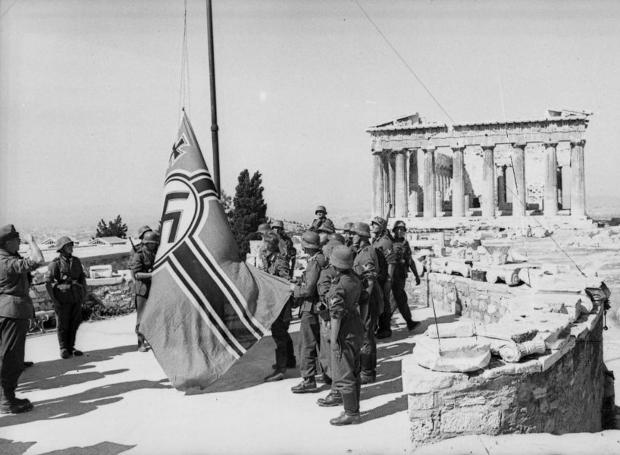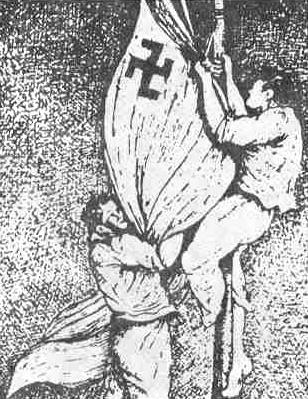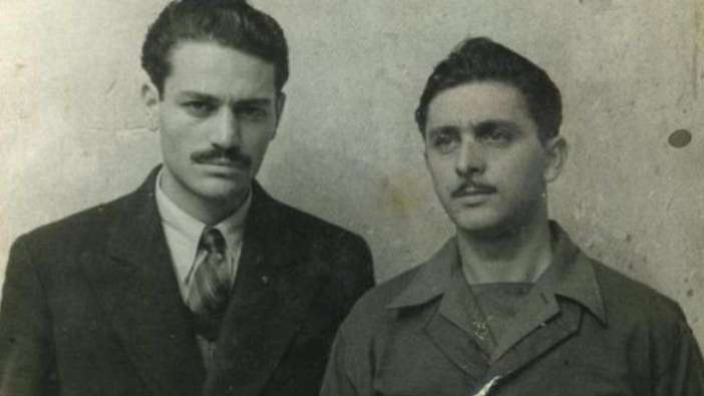On the morning of May 30, 1941, two teenaged Greek boys, Manolis Glezos and Lakis Santas, climbed up the Acropolis and took down the Nazi flag.
How did this brave act of resistance against the occupying army in Greece during WWII come about? The Greek Herald finds out.
READ MORE: Former Greek WWII resistance hero Manolis Glezos dies aged 97.
Act of resistance:
The daring plan to remove the Nazi flag from the Acropolis was born one dusk evening in Zappeion as Glezos and Santas looked up at the archaeological monument and saw the flag waving in the breeze.
READ MORE: European Parliament to name room after Greek WWII resistance fighter Manolis Glezos.

They went to the National Library and read everything about the Acropolis until they realised the only route they could take to avoid capture by the German guards was through the Pandrosi Cave.
On the morning of May 30, 1941, Glezos and Santas were informed by radio that Crete had fallen and they made the decision to implement their plan that night.
READ MORE: On this day in 2011: Apostolos Santas, Manolis Glezos’ partner-in-crime, died aged 89.
The two young men had no weapons, only a lantern and knife. They jumped the wires, crawled through the cave and upon reaching the flagpole, they removed the huge flag which measured 4 x 2 metres. Glezos and Santas quickly escaped with the flag.

READ MORE: On This Day: Greek WWII resistance hero, Manolis Glezos, was born.
The next morning, when the German guards realised the flag had been removed, they began interrogations and quickly replaced it with a new flag.
Glezos and Santas were sentenced to death in absentia, the men of the guard were executed, the Greek commanders of the police stations in the area were relieved of their duties, while the Acropolis guards did not find any incriminating evidence.
Source: Sansimera.gr.

